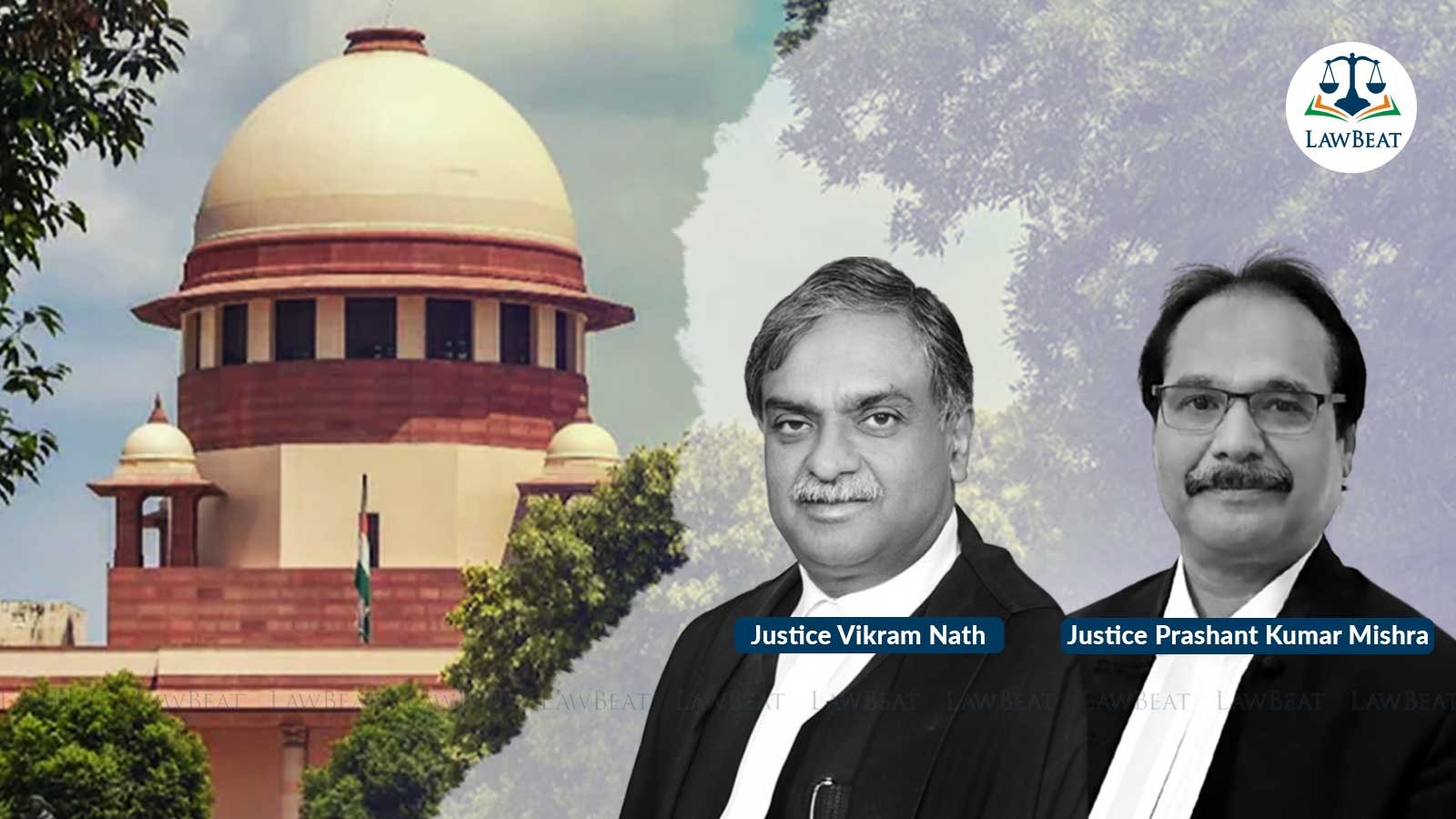Senior govt employees' salary not to be raised for juniors getting higher scale: SC

Allowing appeals, SC bench said, would amount to giving benefit to the appellants and others of the earlier years, during which they were not even born in the cadre and not even serving and this would also go against the principle of equity
The Supreme Court has said salary drawn up by seniors can't be raised just because juniors are getting higher scale due to their past services as it rejected a plea by a group of Assistant Professors in Gujarat government colleges, who were put on lessor pay scale than with those appointed as ad hoc lecturers and subsequently got regularised.
Referring to the Gujarat Civil Services (Pay) Rules, 2002, a bench of Justices Vikram Nath and Prashant Kumar Mishra said Rule 21 stipulated that stepping up would apply only if the conditions specified therein are fulfilled, specifically, condition number (v) of Rule 21 which stated that the anomaly must be the direct result of the application of this rule.
The apex court dismissed an appeal filed by Maheshkumar Chandulal Patel & Anr against the High Court's division bench order of 2017 which allowed an appeal filed by the state government against the single judge bench order for removing the anomaly in the pay of the appellants petitioners qua their juniors by stepping up their pay.
"If the present appeals are allowed, then it would amount to giving benefit to the appellants and others of the earlier years, during which admittedly they were not even born in the cadre and not even serving. This would go against the principle of equity. Such a benefit cannot be claimed by the petitioners for the years of service that they have not actually rendered," the bench said.
Citing the Rule, the bench pointed out, bare reading of the provision makes it clear that a strict compliance of the said rule is necessary.
"The Rule of stepping up shall apply only if the conditions specified therein are fulfilled. Specifically, condition no (v) of Rule 21 stipulates that the anomaly must be the direct result of the application of this rule. It further states by way of an example that, if even in the lower post the junior Government employee draws from time to time the higher rate of pay than the senior by way of fixation of the pay under the normal rule or by grant of advance increments for any reasons, the same shall not be applicable to step up the pay of the senior Government employee," the bench said.
The court examined the issue whether or not the principle of stepping up of pay of an employee on the basis of the pay of his junior, is applicable in the present case, where the appellants are put on a lesser pay scale than the Assistant Professors who were appointed before them as ad hoc lecturers and subsequently regularised.
The genesis of controversy went back to the period of 1984-95 when 111 persons came to be engaged as as lecturers on ad hoc basis in various government colleges.
Appellants submitted that it is an undeniable fact that the subsequent appointees are junior to them. The appellants who were seniors sought pay parity with the junior members of the cadre.
They contended the instant case fulfilled the requisite conditions for invoking Rule 21 of the 2002 Pay Rules as the said rule does not contemplate such anomalous situation where the junior is paid more salary than the senior.
They argued the provisions of Rule 21 are applicable in the fact-situation of the present case in view of junior and senior government employees belong to one and same cadre; and if juniors get higher pay than the seniors, and the seniors have no promotional avenue, their seniority becomes insignificant.
In that case, the very purpose of making regular appointment through GPSC after following the due recruitment process would be frustrated and this could have demoralising effect on the working of seniors. It is to avoid such situation that their pay deserves to be stepped up to the pay equal to their juniors, they said.
The respondents, on the contrary, said despite the ad hoc appointees being juniors, Rule 21 is not applicable in the present case since the conditions stated in the said rule have not been fulfilled as the anomaly in pay is not a direct result of the application of the rule.
That Clause (v) of Subrule (1) of Rule 21 clearly contemplated that if even in the lower post the junior government employee draws from time to time the higher rate of pay than the senior by virtue of fixation of the pay under the normal rule or by grant of advance increments for any reasons, the same shall not be applicable to step up the pay of the senior government employees, they said.
The court, on its part, said, in the present case, the anomaly in pay is not a direct result of Rule 21. "Rather, the alleged anomaly arose because the 85 Assistant Professors (1984-95 Group) have been granted the benefit of Senior Scale/Selection Grade Pay by taking into account the ad hoc services that they have rendered in the past. Therefore, Rule 21 becomes inapplicable in the present case," the bench said.
The court thus dismissed the appeal, after finding no merits in their contention and holding that no relief can be granted to the appellants.
